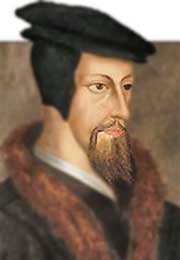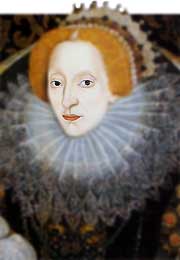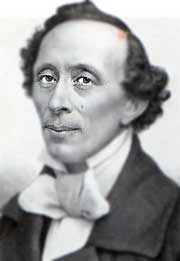John Knox
Reformador religioso escocés
John Knox nació en Haddington en 1514.
Hijo de William Knox, comerciante. Su madre, cuyo apellido de soltera era Sinclair, murió cuando John era un niño. Su hermano mayor, William, siguió con el negocio de su padre.
Cursó estudios en la Universidad de Glasgow.
Siendo sacerdote católico, en 1543 escuchó los sermones del reformador escocés George Wishart y se hizo protestante. En el año 1546 Wishart murió ejecutado por hereje en Saint Andrews y Knox predicó en el castillo y la parroquia del lugar.
Hecho prisionero en 1547 cuando una flota francesa tomó Saint Andrews; pasó un año y medio en las galeras francesas hasta que fue liberado gracias a la intervención de Eduardo VI.
Ingresó en la Iglesia anglicana y en 1551 fue nombrado capellán real.
Cuando María Tudor, católica, se convirtió en María I (1553), reina de Inglaterra, Knox escapó a Génova, donde conoció a Juan Calvino.
Al regresar contactó con nobles protestantes escoceses (los Señores de la Congregación) y escribió su tratado El primer toque de trompeta contra el régimen monstruoso de las mujeres (1558), dirigido contra la regente católica de Escocia, María de Guisa, que gobernaba en nombre de la reina, su hija María.
Al regresar a Escocia en 1559, apoyó la rebelión protestante contra la regencia. The History of the Reformation in Scotland ("La Historia de la Reforma en Escocia"), es una de sus obras más significativas, escrita entre 1559 y 1566.
Con sus sermones en Perth y Saint Andrews logró que estas ciudades defendieran su causa. Los reformadores protestantes, sin embargo, no podían luchar solos y con éxito contra la regente, a quien apoyaban las tropas francesas. Knox convenció a Isabel I de Inglaterra para que interviniera.
Con la ayuda inglesa, favorecido por la muerte de María de Guisa y la retirada de las tropas francesas, el partido protestante se hizo con el control del gobierno escocés.
El regreso a Escocia de la reina católica María, al año siguiente, revivió todas las viejas rencillas y provocó otras nuevas. Como ministro de la catedral de Saint Giles de Edimburgo, condenó en público la conducta personal y la política de María. En 1572 se retiró a Saint Andrews, donde terminó de escribir su último libro, Respuesta a un jesuita escocés (1572).
John Knox falleció el 24 de noviembre de ese mismo año en Edimburgo, Reino Unido.
Obras
An Epistle to the Congregation of the Castle of St Andrews; with a Brief Summary of Balnaves on Justification by Faith (1548)
A Vindication of the Doctrine that the Sacrifice of the Mass is Idolatry (1550)
A Godly Letter of Warning or Admonition to the Faithful in London, Newcastle, and Berwick (1554)
Certain Questions Concerning Obedience to Lawful Magistrates with Answers by Henry Bullinger (1554)
A Faithful Admonition to the Professors of God’s Truth in England (1554)
A Narrative of the Proceedings and Troubles of the English Congregation at Frankfurt on the Maine (1554–1555)
A Letter to the Queen Dowager, Regent of Scotland (1556)
A Letter of Wholesome Counsel Addressed to his Brethren in Scotland (1556)
The Form of Prayers and Ministration of the Sacraments Used in the English Congregation at Geneva (1556)
The First Blast of the Trumpet Against the Monstrous Regiment of Women (1558)
A Letter to the Queen Dowager, Regent of Scotland: Augmented and Explained by the Author (1558)
The Appellation from the Sentence Pronounced by the Bishops and Clergy: Addressed to the Nobility and Estates of Scotland (1558)
A Letter Addressed to the Commonalty of Scotland (1558)
On Predestination in Answer to the Cavillations by an Anabaptist (1560)
The History of the Reformation in Scotland (1586–1587)







